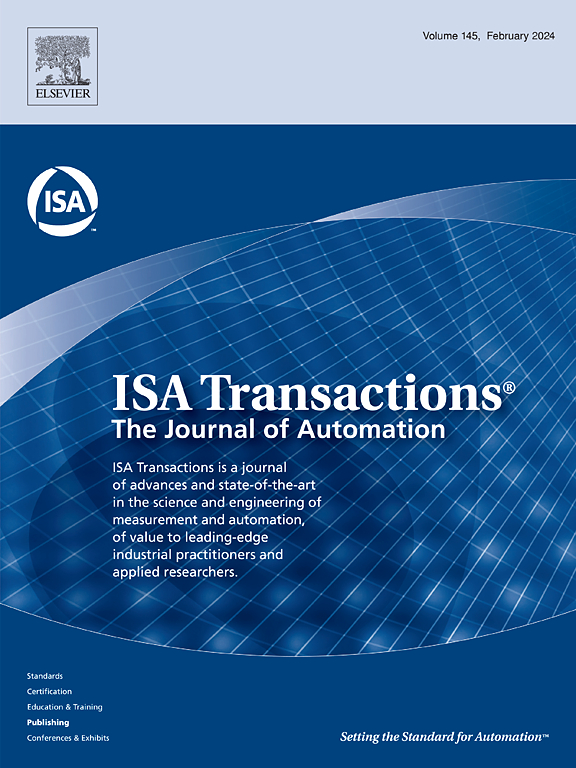Observer-based false data injection attack resilient event-triggered control of microgrid load frequency control system
IF 6.5
2区 计算机科学
Q1 AUTOMATION & CONTROL SYSTEMS
引用次数: 0
Abstract
This study develops a secondary attack resilient observer-based event-triggered control (AROETC) strategy to counter false data injection (FDI) attack at the secondary measurement channel of an islanded microgrid load frequency control (LFC) system with auxiliary/virtual inertia (VI) control loop. The considered microgrid LFC system configuration consists of a local uncompromised VI control loop and a remotely located observer-based secondary controller that ensures FDI attack resilience and communication efficiency. The VI control loop employs a proposed regional pole placement (RPP)-based state feedback auxiliary controller for attaining desired VI performance. The RPP technique of the VI control strategy allows auxiliary control gain tuning by positioning the closed-loop auxiliary poles at the locations described by RPP parameters and thus ensures required auxiliary frequency regulation. Further, the secondary observer and controller gains, ensuring FDI attack resilience and prescribed performance, are derived using Lyapunov–Krasovskii functional stability analysis, considering secondary measurement channel communication delay, output-based event-triggering condition, remote secondary observer location, and deceptive frequency measurement signal model. Additionally, the impact of FDI attack and the efficacy of the proposed FDI AROETC method are validated through simulation analysis under various disturbance input profiles.
基于观测器的假数据注入攻击弹性事件触发控制微电网负荷变频控制系统。
本研究开发了一种基于观测器的二次攻击弹性事件触发控制(AROETC)策略,以对抗具有辅助/虚拟惯性(VI)控制回路的孤岛微电网负载频率控制(LFC)系统二次测量通道上的虚假数据注入(FDI)攻击。所考虑的微电网LFC系统配置包括一个本地不受损害的VI控制回路和一个远程位置的基于观察者的辅助控制器,以确保FDI攻击的弹性和通信效率。VI控制回路采用了一种基于区域极点放置(RPP)的状态反馈辅助控制器来实现理想的VI性能。VI控制策略的RPP技术允许通过将闭环辅助极点定位在RPP参数描述的位置来辅助控制增益调谐,从而确保所需的辅助频率调节。此外,考虑到二次测量信道通信延迟、基于输出的事件触发条件、远程二次观测器位置和欺骗性频率测量信号模型,利用Lyapunov-Krasovskii函数稳定性分析,推导了确保FDI攻击弹性和规定H∞性能的二次观测器和控制器增益。此外,通过仿真分析,验证了FDI攻击的影响以及所提出的FDI AROETC方法在各种干扰输入剖面下的有效性。
本文章由计算机程序翻译,如有差异,请以英文原文为准。
求助全文
约1分钟内获得全文
求助全文
来源期刊

ISA transactions
工程技术-工程:综合
CiteScore
11.70
自引率
12.30%
发文量
824
审稿时长
4.4 months
期刊介绍:
ISA Transactions serves as a platform for showcasing advancements in measurement and automation, catering to both industrial practitioners and applied researchers. It covers a wide array of topics within measurement, including sensors, signal processing, data analysis, and fault detection, supported by techniques such as artificial intelligence and communication systems. Automation topics encompass control strategies, modelling, system reliability, and maintenance, alongside optimization and human-machine interaction. The journal targets research and development professionals in control systems, process instrumentation, and automation from academia and industry.
 求助内容:
求助内容: 应助结果提醒方式:
应助结果提醒方式:


